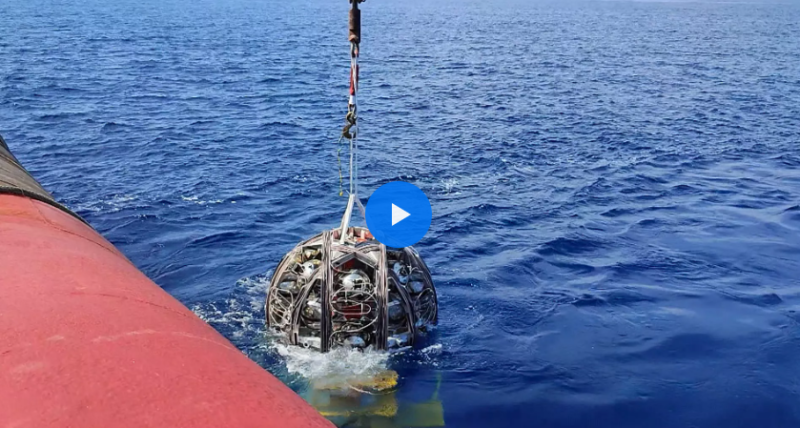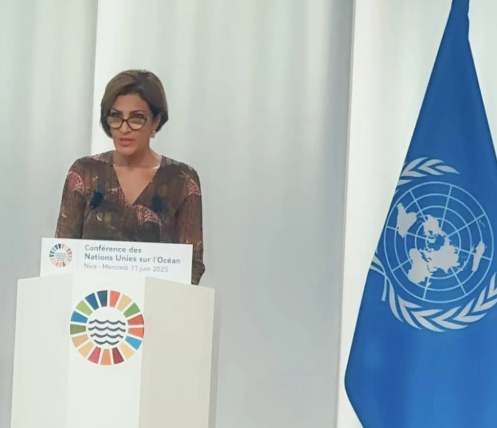July 25, 2025
What if Commander Cousteau could speak in 2025?
What if, from the depths he so loved, he sent us one last message? Through this poignant piece imagined by the teams at Plongez Magazine, his voice, his perspective, and his fight resurface. Half a century after his warnings, what would he think of the current state of the Mediterranean? Warming, plastic pollution, threatened habitats… but also hopes, mobilizations, species comebacks: it’s all there. A strong, lucid, and committed text, like a testament addressed to today’s generations. A letter from the past… yet looking toward the future.
Ladies and gentlemen, dear friends of the sea…
More than half a century ago, aboard the Calypso, I sailed across the Mediterranean. This sea, the cradle of civilizations, fascinated me with its beauty and fragility. I dove into its crystal-clear waters to explore the underwater forests of posidonia and to admire the richness of marine life: the numerous groupers, the shimmering schools of sardines, the peaceful turtles, the playful dolphins, the majestic whales. But already, beneath the surface, the first wounds were appearing. I observed the oil slicks staining its shores and the cities discharging their wastewater, as if the sea were an endless trash can. Here and there, the first plastics… still rare, but heralding a slow poison, were making their appearance.
At that time, I raised an alarm. A global SOS.
I called upon the highest authorities, particularly the countries of the world, during a speech at the United Nations. I knew that the Mediterranean, this almost enclosed sea, could not indefinitely absorb mankind’s carelessness. It was dying…
Today, fifty years later, I plunge my gaze back into its depths. I see improvements, but I still observe situations that deeply sadden me.
Despite significant efforts to treat wastewater and industrial discharges, the Mediterranean is still considered one of the most polluted seas. Yet, in many areas, water quality has greatly improved. I can see it. I also observe with great pleasure the presence of numerous groupers, the return of sustainable stocks for bluefin tuna, and the effective protection of Posidonia.
But in other areas, unfortunately, things have barely changed.
Fishing nets continue to scrape its seabed, tearing away centuries of life. We continue to disrupt certain habitats, such as the coralligenous, for the sake of our maritime activities. Plastic is everywhere: it floats, it sinks, it fragments into invisible particles that enter the bellies of fish… and end up on our plates. In fact, it is probably this very plastic that gives the Mediterranean its unfortunate reputation as the most polluted sea in the world, even though the situation is much worse elsewhere. The sea is warming, it’s a fact. Its millennia-old balance is faltering. Species from elsewhere, particularly those passing through the Suez Canal, threaten to replace the species native to our Mediterranean. For now, Mediterranean marine life resists.
All is not lost. We must keep acting — more, and more forcefully.
Everywhere, women and men are rising to protect the sea. Marine protected areas have been established. They may not be perfect, but they exist, and we can — we must — improve them. Authorities, scientists, associations, and citizens are fighting to restore some of the Mediterranean’s former splendor. But the progress already made, though significant, will not be enough without a broader and deeper global awareness.
The Mediterranean is a sea that connects. It does not separate peoples — it unites them.
Today, in some cities, you can read on storm drains the words: “The sea begins here.” Yes. Every gesture matters. Every drop of clean water, every plastic avoided, every courageous political decision is a victory for her.
I ask you, as I did all my life: be the guardians of the Mediterranean. For she is our memory and our future.
To protect the sea is to protect life.
Let us be the guardians of the Mediterranean — for by saving her… we are saving ourselves.
Of course, this letter was not written by Cousteau himself.
But his words, his ideas, and his watchfulness still resonate. And they remind us of one essential truth: his fight is more alive than ever.
Back in 1977, aboard the Calypso, he sailed the Mediterranean to document the most polluted areas — from the creeks of Marseille to the Étang de Berre — as part of a report for UNESCO. Nearly half a century later, the images from Cortiou have lost none of their impact. He deeply loved this sea.
Now, it is up to us to live up to his legacy.
Source: Figaro Nautisme & Plongez Magazine




